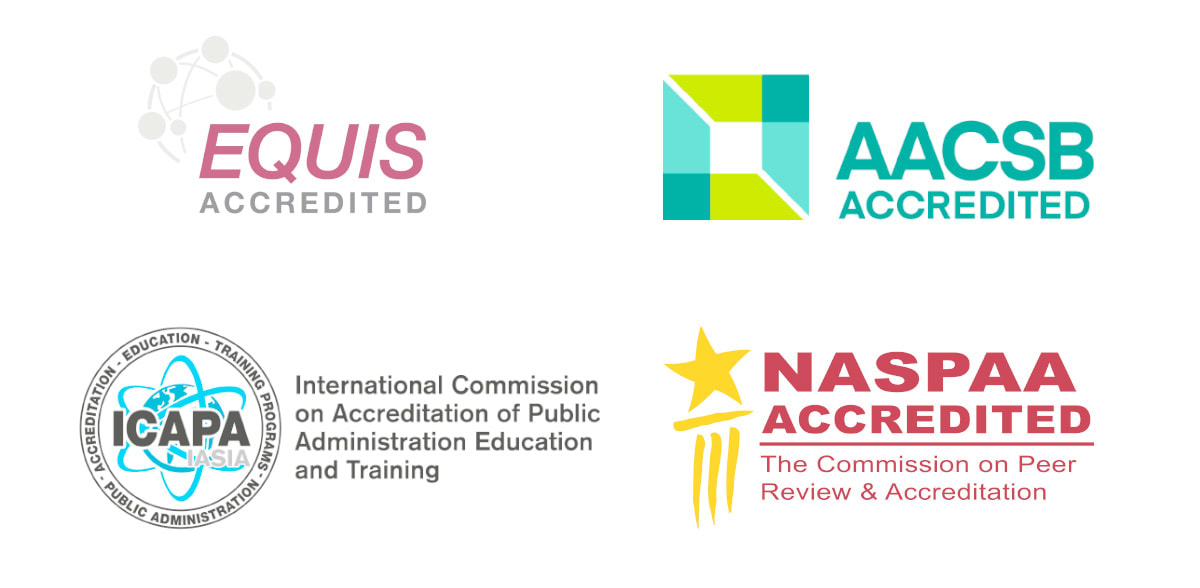
Professional Master's Degree in Public Administration (MAP)
Rio de Janeiro, Brazil
DURATION
22 Months
LANGUAGES
Portuguese
PACE
Part time
APPLICATION DEADLINE
Request application deadline
EARLIEST START DATE
Request earliest startdate
TUITION FEES
BRL 79,987 / per course *

STUDY FORMAT
Blended
* Payment plans in up to 30 installments. Consult us.
Introduction
The Professional Master's in Public Administration (MAP) is designed for leaders of public agencies, in all spheres of government, preparing them to develop their careers based on a solid theoretical base, conceptual rigor and reflection applied to real experiences. The research methodology allows you to develop critical thinking, enabling students to improve the public sector in an impactful way.
Upon completing the course, students will be able to perform management, consultancy and academic career roles, based on the recognition and prestige of FGV EBAPE, the biggest reference in Administration teaching and research in Brazil.
MAP is the first Stricto Sensu postgraduate course in Public Administration in Latin America to receive accreditation from the International Commission on Accreditation of Public Administration Education and Training (ICAPA).
Flexibility to balance professional life and the Master’s degree:
It can be carried out part-time, as in MAP , with weekly classes in the evening, or in MAP Intensive mode, with activities concentrated in one academic week, allowing better access to students not resident in the city of Rio de Janeiro.
MAP
Classes from Monday to Thursday from 6:30 pm to 9:45 pm
* average attendance twice a week, depending on the subjects chosen for the quarter.
MAP IntensiveSchool week with classes from Monday to Friday from 9am to 12pm and from 2pm to 5pm* 12 academic cycles with a 5-week break between each module

Admissions
Curriculum
Lines of Research
Public Policies
The Public Policies line of research strives to analyze the formulation, implementation, monitoring, and assessment cycles for public policies and programs and the effects on these processes exercised by political systems and institutions. It includes new approaches in public policies: intersectionality, social networks, and transversality. Encouraging empirical analyses in fields such as social policies, technical innovation, public safety and security, the environment and sustainability, public finance, population, and citizenship, its focus on development is reflected in disciplines related to social, economic, and cultural policies.
Governance and Public Administration
The Governance and Public Administration line of research strives to understand civil service dynamics from an intra-and inter-organizational standpoint. Intra-organizational dimensions address topics such as budget, planning, governmental and organizational analyses, innovation, and governance in public organizations, underscoring contextualization through characteristics specific to Brazil. The governance approach is clear in the study of the dynamics of the relationships between the State and Society, focused on social management and new ways of providing and administering public services through partnerships with the private or tertiary sectors, in parallel to administration and development.
Courses and Seminars
The Master’s Degree in Public Administration offers short-duration international modules throughout the year in collaboration with its institutional partners by means of reciprocal agreements. The School strives to ensure that its professional Master’s students become involved with matters that are important to society, as well as become familiar with local, regional, and multi-regional business contexts and customs. In addition to it, there are the Graduate Seminars and the Workshops, through which EBAPE integrates with partner institutions by inviting visiting researchers to stimulate high-quality discussion on ongoing research.
The Workshops Program brings visiting professors from internationally renowned institutions. Those are 15-hour courses open not only to EBAPE students but also to external graduate students. The offer is based on availability and demand.
Structures and Disciplines
The curricular structure is based on: four mandatory disciplines; eight elective disciplines; one professional intervention/guidance discipline; each of which is worth two credits.
Total credits for award of the degree
- Disciplines: 24 (twenty four) credits
- Dissertation: 11 (eleven) credits
- Reference: 1 (one) credit = 15 (fifteen) hours
- Total: 35 (thirty five) credits.
Deadline for completing the program: 22 (twenty-two) months, including approval and public presentation of the Final Coursework.
Regular Schedule
- Classroom sessions: quarterly;
- The total duration of the course: 22 months;
- Diploma awarded at end of the course: Master of Public Administration.
Intensive Schedule
- Classroom sessions: 12 weeks (total);
- Gaps between classroom sessions: about six weeks;
- The total duration of the course: 22 months;
- Diploma awarded at end of the course: Master of Public Administration.
Final Coursework and Presentation
In order to complete the program, each student must prepare a final coursework project that may be a dissertation resulting from fieldwork conducted by the student under the guidance of a professor. The final coursework shall be prepared in one of the following formats:
- Dissertation
- In-depth case study
- Diagnostic report and analysis
The final coursework must be presented to a public panel consisting of three professors with PhDs, one of whom must be the adviser from the MPA tenured faculty, one an invited professor from the institution, and one from outside FGV EBAPE. In order to present the project and complete the course, the final coursework project must be approved, and the student must have completed the 26 (twenty-six) credits required, with a final grade of at least 7.0 (seven) for the complete set of disciplines followed during the course (mandatory and elective).
After completing these procedures, students may request their Master’s Degree certificates.
Disciplines
Mandatory Disciplines
- Government, State, and Society
- Research Methodology
- Public Policies
- Public Administration Theory
Methodological Orientation Disciplines
- Research Methodology
- Quantitative Methods Applied to Decision-Making in the Public Sector
- Qualitative Research Methods
Professional Intervention / Orientation Disciplines | Mandatory (select one)
- Analysis of Public Organizations and Policies (AOPP)
- In-Depth Case Study - EAC
Substantive Elective Disciplines – eight disciplines to be selected
- Administration and Development
- Good Governance and PublicTransparency
- Financial Accounting in the Public Sector
- Designing Public Policies Based on Evidence
- Inequality, Poverty, and Policy
- Political Economy in Latin America
- Entrepreneurism, Innovation, and Sustainability
- Teaching Strategy
- Structure and Processes within Public Organizations
- Ethics and Culture
- Management and Social Control
- Collaborative Governance
- Governance in Public Organizations and the Third Sector
- Governance for Results
- Administration and Public Policies Lab I
- Administration and Public Policies Lab II
- Quantitative Methods Applied to Decision-Making in the Public Sector
- Qualitative Research Methods
- Budget in the Public Sector
- Organizations, Diversity, and Workplace Relations
- Planning of Public Organizations
- Defense Policies and Military Organizations
- Public Policies and Population
- Public Policies, the Environment, and Sustainability
- Regulatory Policies
- Public Administration Networks
- The Brazilian Political System: Institutions and Public Policies
*Elective disciplines will be offered depending on the availability of Faculty and the number of students interested in each of them.
Gallery
Program Outcome
To train leaders in Brazil’s civil service sector. This program allows new graduates to offer consulting services, accept middle and senior management positions in the civil service, and progress in their academic careers.
Ideal Students
Directors, managers, and other senior-level professionals working in direct and indirect civil service entities in all spheres of government.
